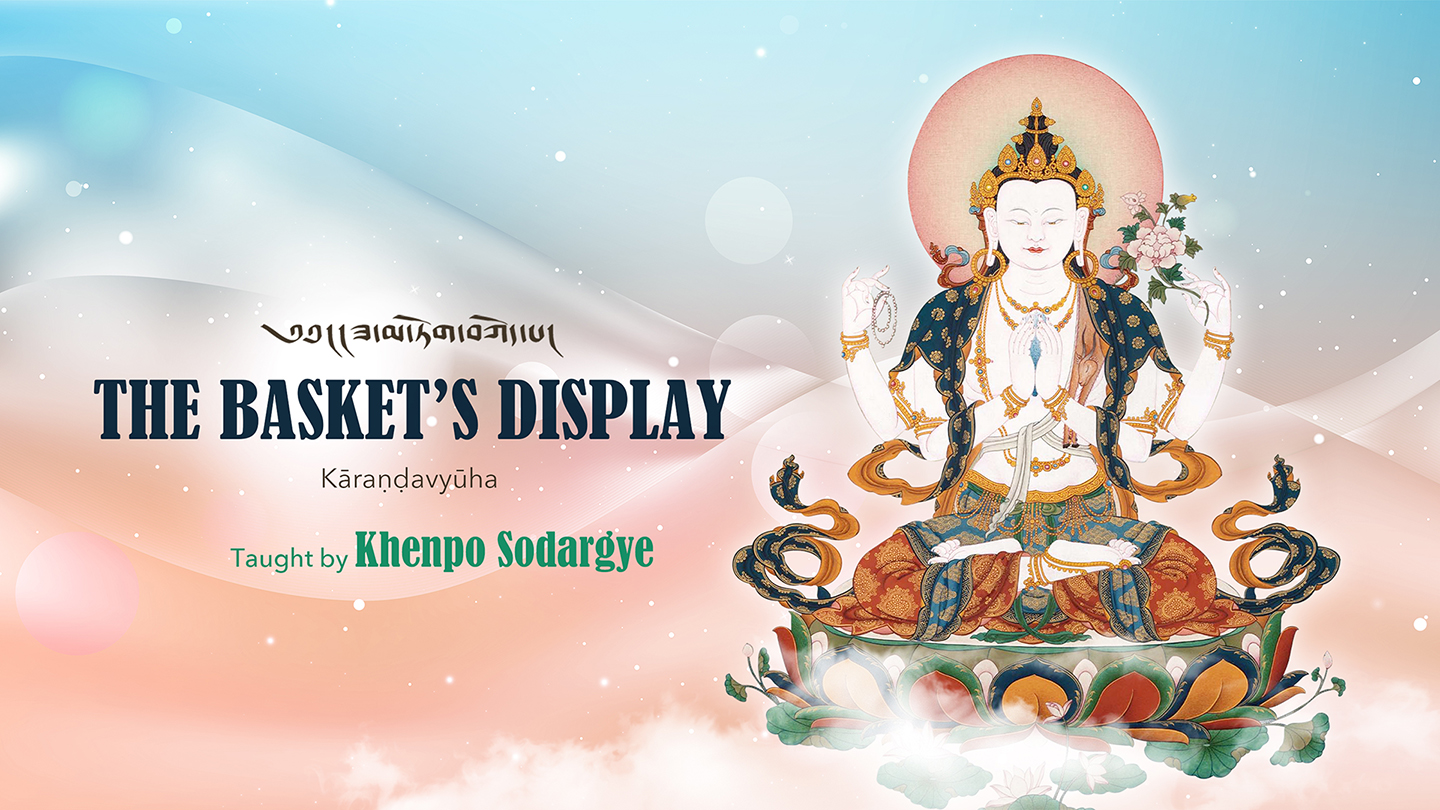With sincere devotion, each of you can become a messenger of Avalokiteshvara. You have the responsibility to help those around you connect with Avalokiteshvara and plant virtuous seeds in their mind streams. Even the seemingly small act of convincing them to recite the mani mantra or Avalokiteshvara’s name a few times, or simply allowing them to hear such chanting, has a profound meaning that extends far beyond our comprehension.
The Basket’s Display
During the reign of King Lha Thothori Nyentsen, several sacred objects representing the Three Jewels miraculously appeared on the roof of the royal palace. Among these was the noble Mahayana sutra, The Basket’s Display, which represents the speech of the buddhas. This event marked the beginning of the Dharma in the Snow Land of Tibet.
The Basket’s Display primarily expounds on the meritorious qualities of Avalokiteshvara and his renowned mantra, the mani mantra, which has become the most widely practiced mantra among Tibetans. This sutra is the first known source of this powerful mantra.
The six syllables of the mani mantra are imbued with boundless merit. According to the Guhyagarbha Tantra, a deity’s mantra is inseparable from the deity him or herself. Furthermore, The Basket’s Display states that when one chants the mani mantra, one receives blessings from buddhas and bodhisattvas of the ten directions and protection from gods, nagas, and noble dharma protectors.
Additionally, The Basket’s Display served as a significant source of quotations for the Mani Kabum, a highly influential text attributed to King Songtsen Gampo, one of the most renowned emanations of Avalokiteshvara. This text laid the foundation for the widespread practice of Avalokiteshvara in the Land of Tibet.
Khenpo Sodargye’s teachings on this profound Mahayana sutra reveal its ultimate intention and provide practical guidance on the Avalokiteshvara practice and overall spiritual development.

A noble son or noble daughter who repeats the six-syllable mahavidya will have indestructible mental brilliance. He or she will become a pure mass of wisdom. That person will have great love and great compassion. That person will complete the six perfections each day.


The Basket’s Display ultimately aims to guide living beings toward rebirth in Sukhavati through the compassionate blessings of Avalokiteshvara and Buddha Amitabha.

Those who turn their minds to this king of the sutras will have happiness in this world. Hearing it will purify them of the five actions with immediate results on death.
—The Basket’s Display
Audio Recordings (with simultaneous English translation)
Videos (with simultaneous English translation)
The fifth lecture is the video recording of Khenpo’s oral transmission of The Basket’s Display. Transmissions received through videos cannot be considered genuine transmissions, so they cannot be transmitted forward to others. However, in terms of personal practice, you can receive special blessings through the video and audio recordings of great masters.
Then Tathagata Padmottama praised the qualities of this six-syllable mahavidya:
“Noble son, it is like this. As a comparison, I can know the number of atoms, but, noble son, I cannot calculate the accumulation of merit from repeating the six-syllable mahavidya once.”
If you find any problems with the video and audio recordings or have any suggestions, please feel free to contact us at info@khenposodargye.org.
